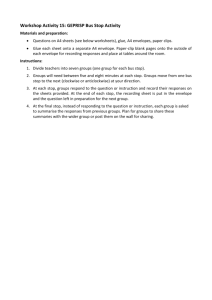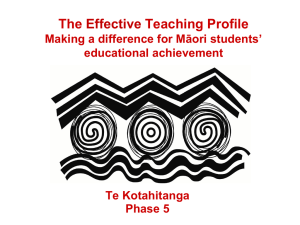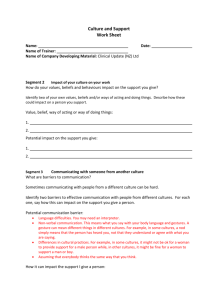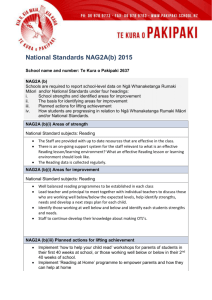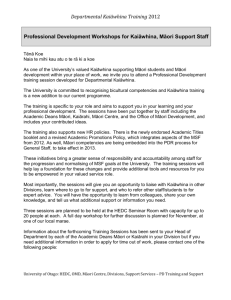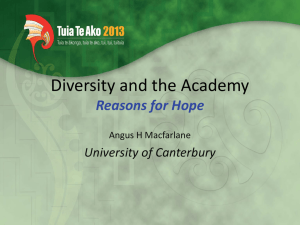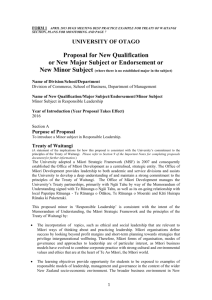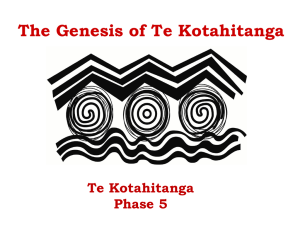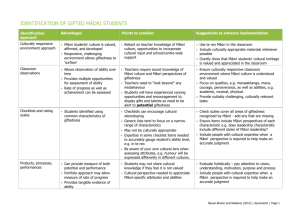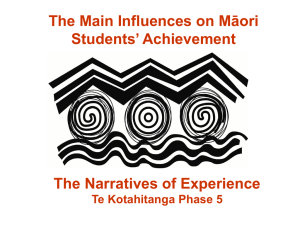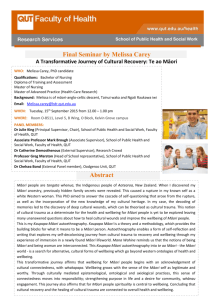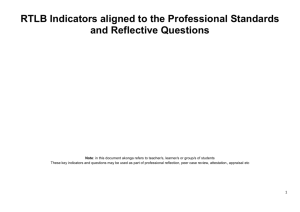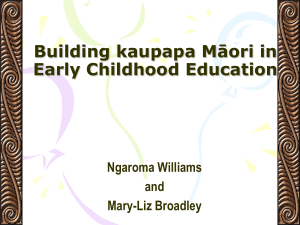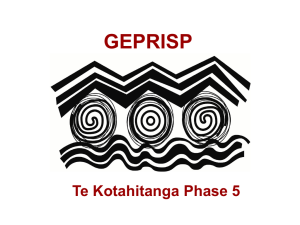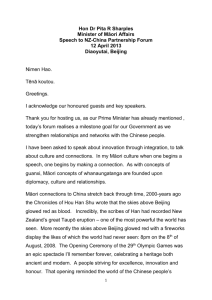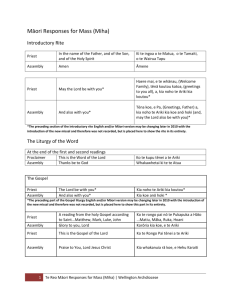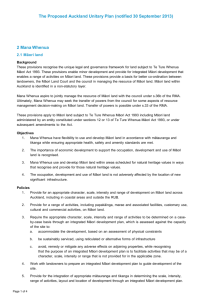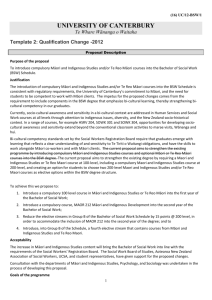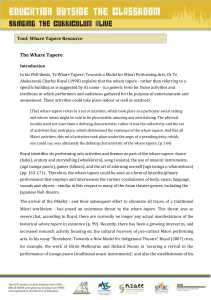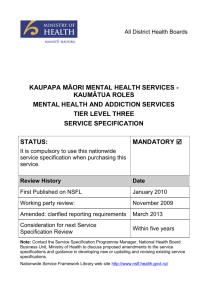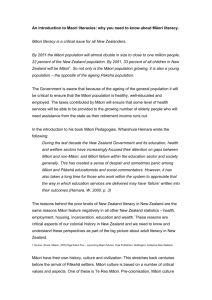Module 3 Effective Teaching Profile (ETP) Overview
advertisement
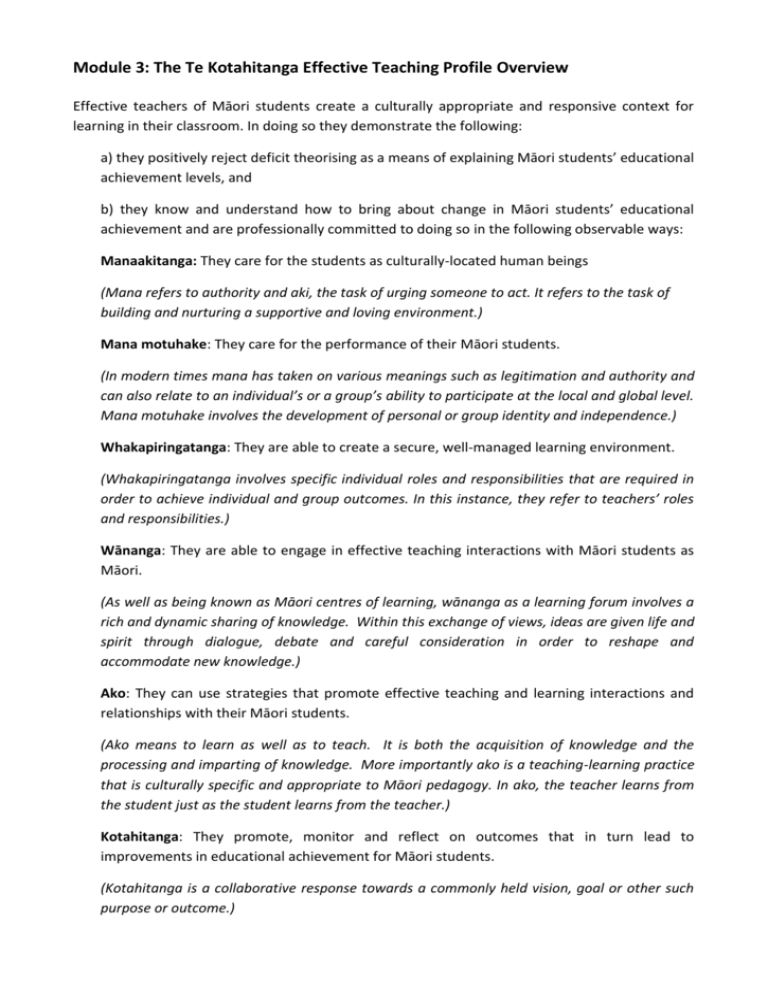
Module 3: The Te Kotahitanga Effective Teaching Profile Overview Effective teachers of Māori students create a culturally appropriate and responsive context for learning in their classroom. In doing so they demonstrate the following: a) they positively reject deficit theorising as a means of explaining Māori students’ educational achievement levels, and b) they know and understand how to bring about change in Māori students’ educational achievement and are professionally committed to doing so in the following observable ways: Manaakitanga: They care for the students as culturally-located human beings (Mana refers to authority and aki, the task of urging someone to act. It refers to the task of building and nurturing a supportive and loving environment.) Mana motuhake: They care for the performance of their Māori students. (In modern times mana has taken on various meanings such as legitimation and authority and can also relate to an individual’s or a group’s ability to participate at the local and global level. Mana motuhake involves the development of personal or group identity and independence.) Whakapiringatanga: They are able to create a secure, well-managed learning environment. (Whakapiringatanga involves specific individual roles and responsibilities that are required in order to achieve individual and group outcomes. In this instance, they refer to teachers’ roles and responsibilities.) Wānanga: They are able to engage in effective teaching interactions with Māori students as Māori. (As well as being known as Māori centres of learning, wānanga as a learning forum involves a rich and dynamic sharing of knowledge. Within this exchange of views, ideas are given life and spirit through dialogue, debate and careful consideration in order to reshape and accommodate new knowledge.) Ako: They can use strategies that promote effective teaching and learning interactions and relationships with their Māori students. (Ako means to learn as well as to teach. It is both the acquisition of knowledge and the processing and imparting of knowledge. More importantly ako is a teaching-learning practice that is culturally specific and appropriate to Māori pedagogy. In ako, the teacher learns from the student just as the student learns from the teacher.) Kotahitanga: They promote, monitor and reflect on outcomes that in turn lead to improvements in educational achievement for Māori students. (Kotahitanga is a collaborative response towards a commonly held vision, goal or other such purpose or outcome.) Culturally appropriate and responsive teachers demonstrate the following understandings: a) They positively reject deficit theorising b) They are committed to and know how to bring about change in the educational achievement of Māori students in the following ways: 1) 2) 3) 4) 5) 6) Caring for Māori students as culturally located individuals Caring for the participation and achievement of Māori students Creating a secure, well-managed learning environment Engaging in effective teaching interactions Using a range of teaching strategies to promote change Promoting, monitoring and sharing outcomes for and with Māori students. POSITIONING Effective teachers positively reject deficit theorising Effective teachers are committed to, and know how to, bring about change in educational achievement. CO-CONSTRUCTION To work as a learner with other learners in order to negotiate learning contexts and content. C Teachers FEED FORWARD ACADEMIC+ FEED FORWARD ACADEMIC – create a visible To support student learning through the provision of responses that aim to and culturally promote future learning or academic progress. appropriate FEED BACK ACADEMIC+ FEED BACK ACADEMIC – context for To support student learning through the provision of responses that aim to learning. promote reflection on tasks that have already occurred or ideas that the student has raised. Cc c Teachers create a context that is responsive to the culture of the learner, thereby allowing the learner to bring who they are to the learning context. PRIOR EXPERIENCES & KNOWLEDGE To support student learning through the collaborative identification, acknowledgement and application of their prior experiences and knowledge. FEED FORWARD BEHAVIOUR+ FEED FORWARD BEHAVIOUR – To promote more appropriate student behaviour by identifying future consequences of behaviour thus encouraging a degree of self-reflection and selfdetermination. FEED BACK BEHAVIOUR+ FEED BACK BEHAVIOUR – To manage student behaviour by applying or enforcing consequences. Feedback behaviour that is negative tends to contain emotional rather than behavioural statements and is often emotionally delivered. MONITORING To check whether instructions are being carried out appropriately, whether students understand what they are supposed to be doing or what they have negotiated to do. INSTRUCTION To teach something, to impart or transmit knowledge. RELATIONSHIPS Manaakitanga: Teachers establish a caring, secure and safe environment for learners as culturally located individuals. Mana Motuhake: Teachers exhibit / vocalise high expectations for learners to achieve and be self determining individuals. Whakapiringatanga: Teachers’ roles and responsibilities are used to bring together all of the elements required to establish well-managed learning environments.
